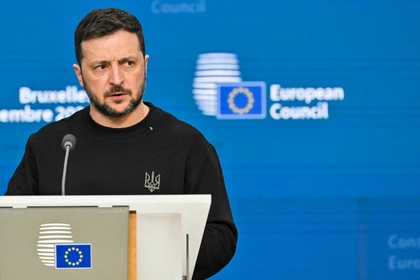Polish Prime Minister Donald Tusk said that nine people arrested in Poland were suspected to be part of a group carrying out sabotage attacks, not only in Poland, but also in Lithuania, Latvia and Sweden.
Speaking to the commercial broadcaster TVN24 he said: “We currently have nine suspects detained and indicted, who have been directly implicated in the name of Russian [intelligence] services in acts of sabotage in Poland.”
JOIN US ON TELEGRAM
Follow our coverage of the war on the @Kyivpost_official.
Tusk termed the suspects as “mercenaries,” responsible for carrying out beatings as well as arson attacks on behalf of Russian special services. Among those arrested were citizens of Poland, Ukraine and Belarus.
He said the sort of activities carried out by the group included the attempted arson attacks on a paint factory in Wroclaw, western Poland, and on an Ikea warehouse and store in Lithuania. He said further information on the suspects and their actions would be made public in the coming days.
He said that not only were investigations into this group’s activities ongoing, but Poland’s security forces were taking action, in coordination with its [Baltic] neighbors and other allies, to eliminate and prevent other threats of the same type with the likely arrests of other perpetrators.
He also said that: “thanks to the vigilance of our services and our allies,” Warsaw had prevented other acts of sabotage.
This was probably in reference to the arrest of Polish citizens working for Russian intelligence that had been involved in April’s plot to assassinate Ukrainian president Volodymyr Zelenskiy and the March attack on Leonid Volkov in Vilnius, an ally of the late Russian opposition leader Alexei Navalny.

‘It Has Gone on Far Too Long’ – Ukraine at War Update for Dec. 20
Tusk announced a week ago that Poland was strengthening its civil and military counter-espionage services.
In Monday’s interview, he suggested that this was because of the increase in Russia’s attempts to destabilize the country and the weaknesses that had become evident in Poland’s readiness to combat it.
He went on to lay the blame for this and past failures to address the threat sooner, on members of the previous government. He specifically named Antoni Macierewicz, Poland’s former Minister of National Defense, and Michał Dworczyk, a former government advisor on Eastern European affairs, along with several of their appointees as having been responsible for the weakening of Poland’s military and intelligence capabilities for more than a decade.
Tusk said it wasn’t his job to investigate whether the situation was the result of negligence, incompetence, stupidity or of conscious political activity.
At the same time, he announced that a parliamentary commission to investigate Russian and Belarusian influence in Poland would be launched on Tuesday, saying it was vital to understand “what is happening in Poland, also on various levels of government and administration.”
He decried the anti-EU and pro-Russian stance of several former members of parliament and mentioned the defection of former judge Tomasz Szmydt to Belarus – who had been appointed by the former Justice Minister Zbigniew Ziobro, and had “done his best to disrupt and dismantle Poland’s justice system.”
You can also highlight the text and press Ctrl + Enter






